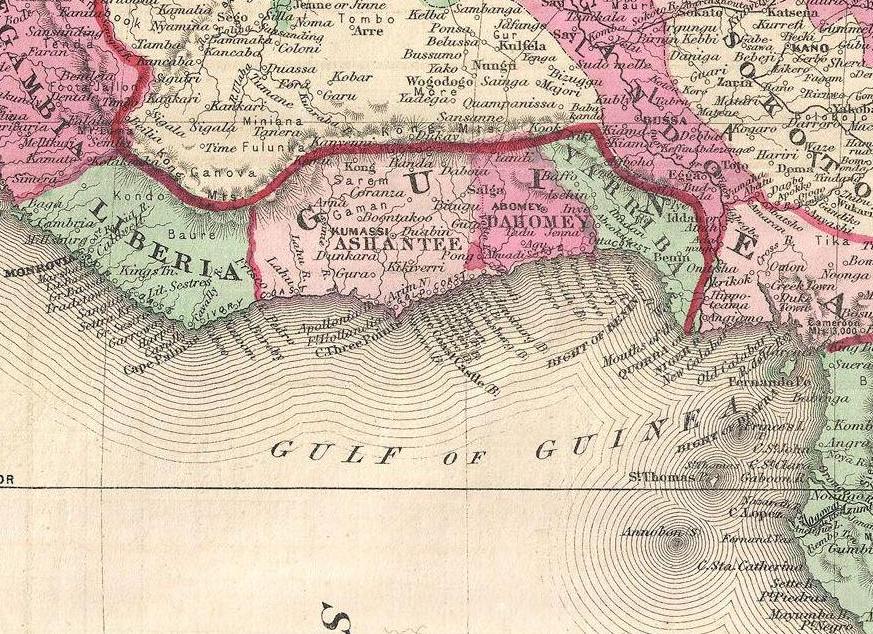During a large portion of the last three years, we have been cut off from all communication with our missionaries. Amid some indications of Divine favor, and in the experience of painful changes, our brethren in … Yoruba [modern-day Nigeria] have nobly toiled on in their work. …
At the time of our last report [the Lagos] station was under the care of Brother Joseph M. Harden, who temporarily was sustaining himself and family by his own labor. But we have now to mourn his death. On the 15th of May, 1864, he was taken away, after a severe and protracted illness of congestion of the liver. …

[The Abeokuta] station has been well sustained by Brother Philips during the last five years. … The war in that country has interrupted his labors. … Brother Philips, in a letter dated October 1st, 1864, gives some encouragement facts. He says: “I am getting on as well as I could expect in my hampered circumstances. I manage to keep the [school] children fed, and in some way clothed. In the beginning of the year I sent the largest boys to work for themselves, but they still live here, so I have not lost them to my congregation. My congregation is good; more than my room will seat. I have this year reclaimed a few and excluded a few, and now have four candidates for baptism.” …
[The Awyaw] station had been under the care of Brother Reid until the spring of 1864, when his failing health compelled him to leave. He remained a while, laboring in Abeokuta, but is now in England. His circumstances during the war in Yoruba have been peculiarly embarrassing, and it was at the risk of his life that he at length passed amid the contending hosts down to Abeokuta. We had not heard of him, nor had Brother Philips received information from him, for more that two years, so completely was he cut off by the destructive wars of that country. In his last letter he says: “I was very loth to leave my post till the war was over, but necessity seemed to demand it. I was destitute of almost everything. My clothing was worn out, and no food but native, and that not good, because of the scarcity of cowries to buy with. Many times, for several days, I have lived on one cent’s worth of food per day. Sometimes, for five or ten days, I did not taste meat of any kind. At one time I was twenty-seven months without seeing the face of a [Westerner]. Thus I have gone on until I came down to Abeokuta.” During all this time he had funds, but not in the currency of the country. He says: “Sometimes I could change a few dollars for cowries, but not often.” He left the station at Awyaw in the care of a native assistant. The same is true at Ogbomishaw.
Originally published in “Report of the Foreign Mission Board for Three Years, Ending April 1, 1866,” submitted by G.W. Rogers, Chairman.

